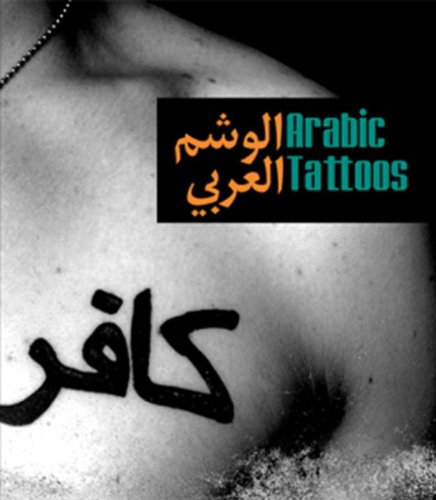mark batty publisher april 2008 (1 results)
Product Type
- All Product Types
- Books (1)
- Magazines & Periodicals
- Comics
- Sheet Music
- Art, Prints & Posters
- Photographs
- Maps
- Manuscripts & Paper Collectibles
Condition
- All Conditions
- New (1)
- Used
Binding
- All Bindings
- Hardcover
- Softcover (1)
Collectible Attributes
- First Edition
- Signed
- Dust Jacket
- Seller-Supplied Images
- Not Print on Demand (1)
Free Shipping
- Free US Shipping
Seller Location
Seller Rating
-
Arabic Tattoos
Published by Mark Batty Publisher April 2008, 2008
ISBN 10: 0977985083ISBN 13: 9780977985081
Seller: Hennessey + Ingalls, Los Angeles, CA, U.S.A.
Book
Trade Paperback. Condition: New. It's no secret that tattoos have become a commonly accepted and popular form of self-expression; people young and old wear sleeves of ink and florid designs peek out from waistband and shirt collars. Over the past few years, however, a new genre of tattoos has emerged: Arabic tattoos. Although Islam prohibits tattooing, 'Arabic Tattoos' documents the reasons why people from the United States and Europe get these tattoos, ranging from names converted from Latin alphabets to Arabic, to bold words like 'infidel' emblazoned on US soldiers returning to Iraq. Jon Udelson, the book's compiler, writes, 'These tattoos signify more than the words and designs they showcase upon a person's skin. They are representative of the this crucial point in modern time where cultural awareness, acceptance, and, unfortunately, fear, are salient aspects of global culture.' Along with the photographs of these tattoos and the stories from their recipients, designers and inkers, essays from tattoo expert Clayton Patterson and Egyptian artist Hamdi Attia provide a thoughtful context for these tattoos. The purpose of 'Arabic Tattoos' is to illuminate questions like 'To whom does a language belong?' and in doing so add to an ever expanding public discourse that involves philosophy, religion, politics and art, arriving at a higher understanding of this multi-cultural world in which we live. The growing popularity of Arabic tattoos shows how Arabic-speaking cultures have impacted the world at large.


